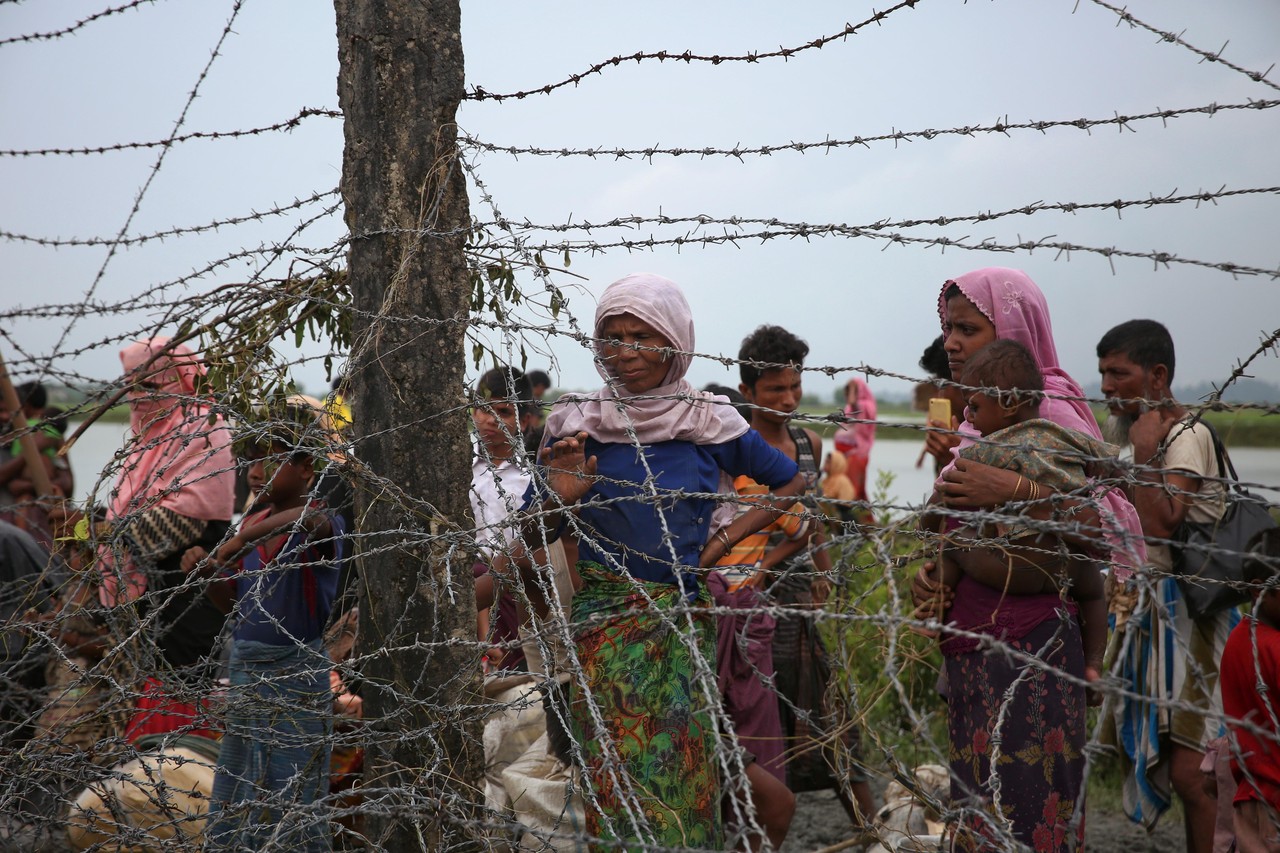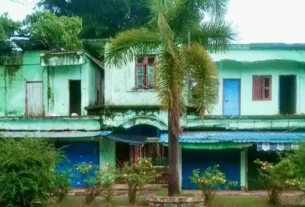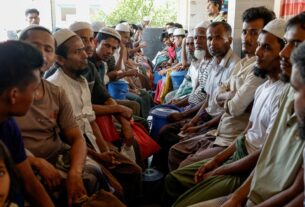– Deaths Reported Due to Delays in Accessing Medical Care
Rohingya residents from Kyauk Hlay Kar, Mingalar Gyi, Hla Baw Zar, Paung Zar, and Pyin Phyu villages — located under the jurisdiction of Pyin Phyu area (Zone 6) in Maungdaw Township, Rakhine State — are being barred from entering Maungdaw town unless they can present a recommendation letter issued by the Arakan Army (AA) or its administrative wing, the United League of Arakan (ULA), according to local reports.
Wsnews24.com has confirmed the authenticity of these reports after speaking directly with affected Rohingya residents, who described the challenges they face in accessing essential services.
Residents said that to enter the town for funerals, shopping, or medical treatment, they are required to obtain two recommendation letters, which can only be issued by the village and area administrators after paying a fee of 5,000 kyats. Recently, a pregnant woman from Kyauk Hlay Kar Village reportedly died on the way to Maungdaw after delays in obtaining travel authorization documents. Previously, villagers could travel freely without such letters, but AA has now completely restricted those routes.
Additionally, Rohingya from Thuu Oo Lar, Ngan Chaung, Nga Sar Kyu, Pyin Phyu Chaung, Kyauk Hlaung Taung, Nga Khu Ya, Kyet Yoe Pyin, and Oo Chit Kya villages are no longer allowed to travel to nearby Rohingya villages such as Kyauk Hlay Kar, Tharay Aok, and Pyin Phyu.
Meanwhile, fighting between AA and Arakan Rohingya Salvation Army (ARSA) forces has been ongoing near Mee Taik and Kwan Thee villages. Locals and rights observers have criticized the AA’s travel restrictions on Rohingya villages located around ten miles from the conflict zone, calling them unjust and discriminatory actions that collectively punish and oppress the already suffering Rohingya population.
Human rights observers note that such restrictions on freedom of movement, coupled with coercion and financial extortion, constitute violations of international humanitarian law (IHL) and human rights conventions.
Under the Fourth Geneva Convention (1949) and customary international humanitarian law, all armed groups are obligated to protect civilians and refrain from collective punishment, arbitrary restrictions on movement, or forced contributions. The Universal Declaration of Human Rights (Article 13) guarantees freedom of movement and the right to access medical care and livelihood. Preventing Rohingya civilians from traveling freely or obtaining essential services without AA-issued permissions amounts to discriminatory persecution. When carried out systematically, such acts are considered crimes against humanity under Article 7 of the Rome Statute of the International Criminal Court.
International legal experts emphasize that non-state armed groups like the AA are also bound by Common Article 3 of the Geneva Conventions, which prohibits violence, coercion, humiliating treatment, and extortion against civilians in internal armed conflicts. Human rights advocates have urged regional and international bodies to monitor and document these abuses to ensure accountability for violations committed against Rohingya civilians in AA-administered areas of northern Rakhine State.




